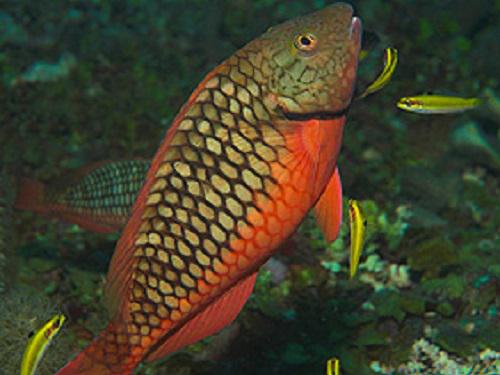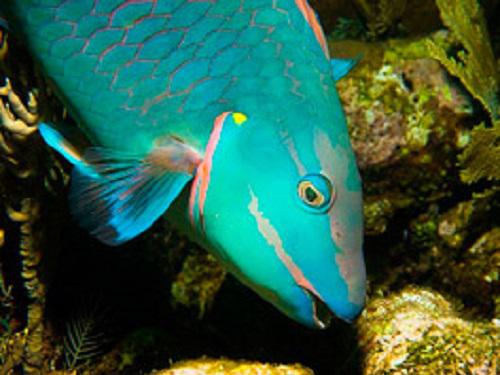George Stoyle
Conservation of keystone species, such as parrotfish, may be the only way to restore Caribbean coral reefs and the livelihoods which depend on them. We aim to quantify current levels of parrotfish removal and also demonstrate their role in maintaining the health and economic value of coral reefs.

The historical, present and predicted future degradation of Caribbean coral reefs has been well documented over the last 3 decades, the many and diverse causes of coral mortality described at length in numerous studies. Wide-scale loss of reef-building coral organisms, as a result of varied and increasing levels of anthropogenic disturbance, is now commonplace in many of the region’s coral reef ecosystems. In light of this it is essential we focus on conserving the functional roles of keystone species in order that the structure and integrity of coral communities can potentially be restored and maintained. Parrotfish are a keystone species, providing critical functions in a coral reef ecosystem.

By consuming algae from reefs, parrotfish limit its cover and create space for coral settlement and growth. As local fishing pressure increasingly targets parrotfish species their essential function as algal consumers decreases. Crucially there is likely to be a minimum threshold of parrotfish abundance below which algae may dominate over corals. Once this tipping point has been reached, it is very difficult for coral dominance to be restored. Consequently the best option is to prevent these phase shifts from occurring. Whilst the degradation of Caribbean coral reefs has been well documented over the last 3 decades, the processes that underpin phase shifts and methods for their prevention are still not clearly understood. Rarely have parrotfish been specifically singled out and their conservation promoted. Nor has their management traditionally been incorporated as part of fisheries management plans.
This project will provide new information on the role of parrotfish on Caribbean coral reefs and their ability to combat algal overgrowth. Importantly the project also aims to raise awareness within the community of the role of parrotfish as an integral part of the wider reef system. Further, as reefs throughout the region are experiencing similar problems the dissemination of this project’s outcomes, through partners such as the Regional Institute for Biodiversity, will act as a model for other areas on how to successfully restore adequate grazing pressure on Central American reefs; linking current academic knowledge with community management to form a practicable solution.